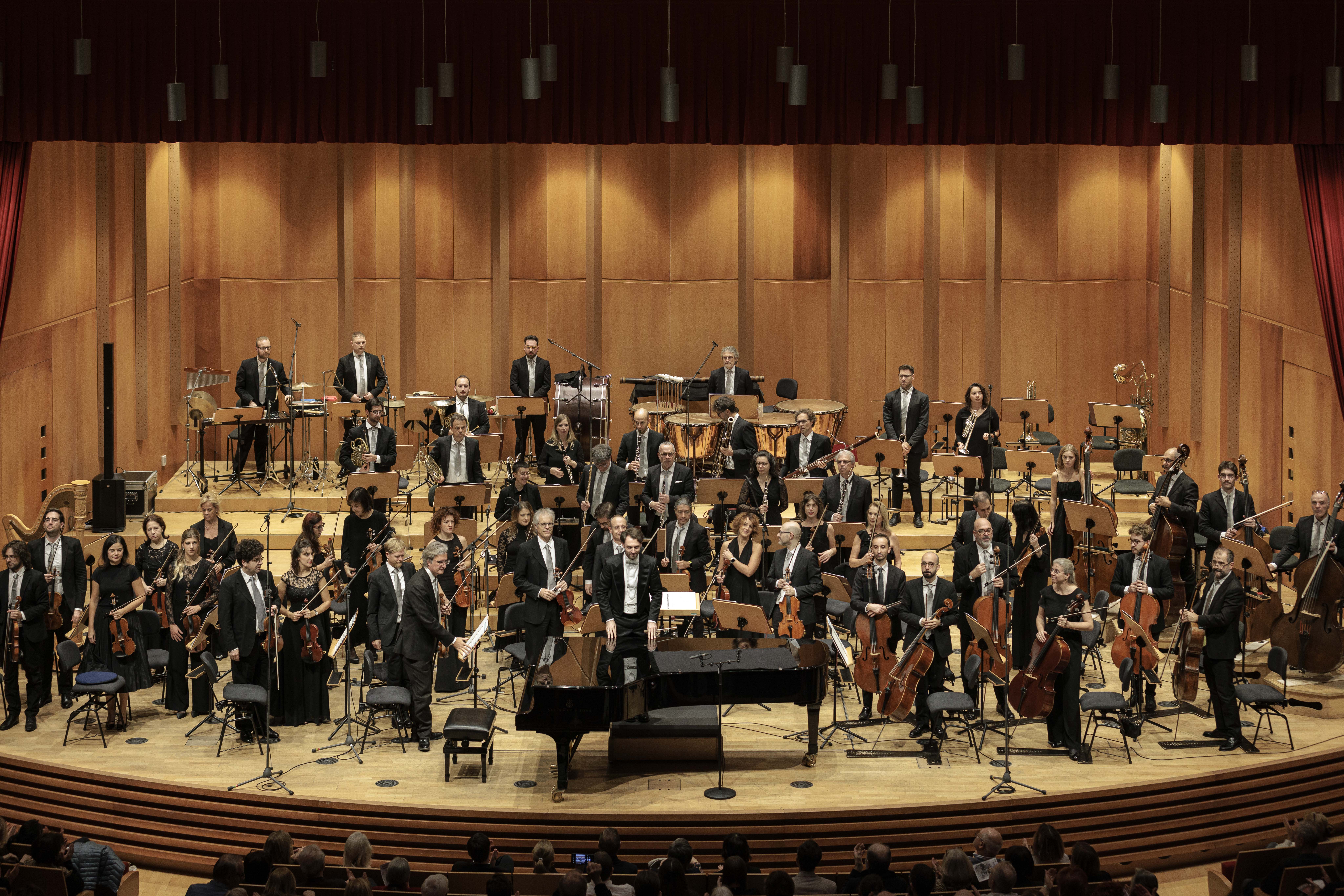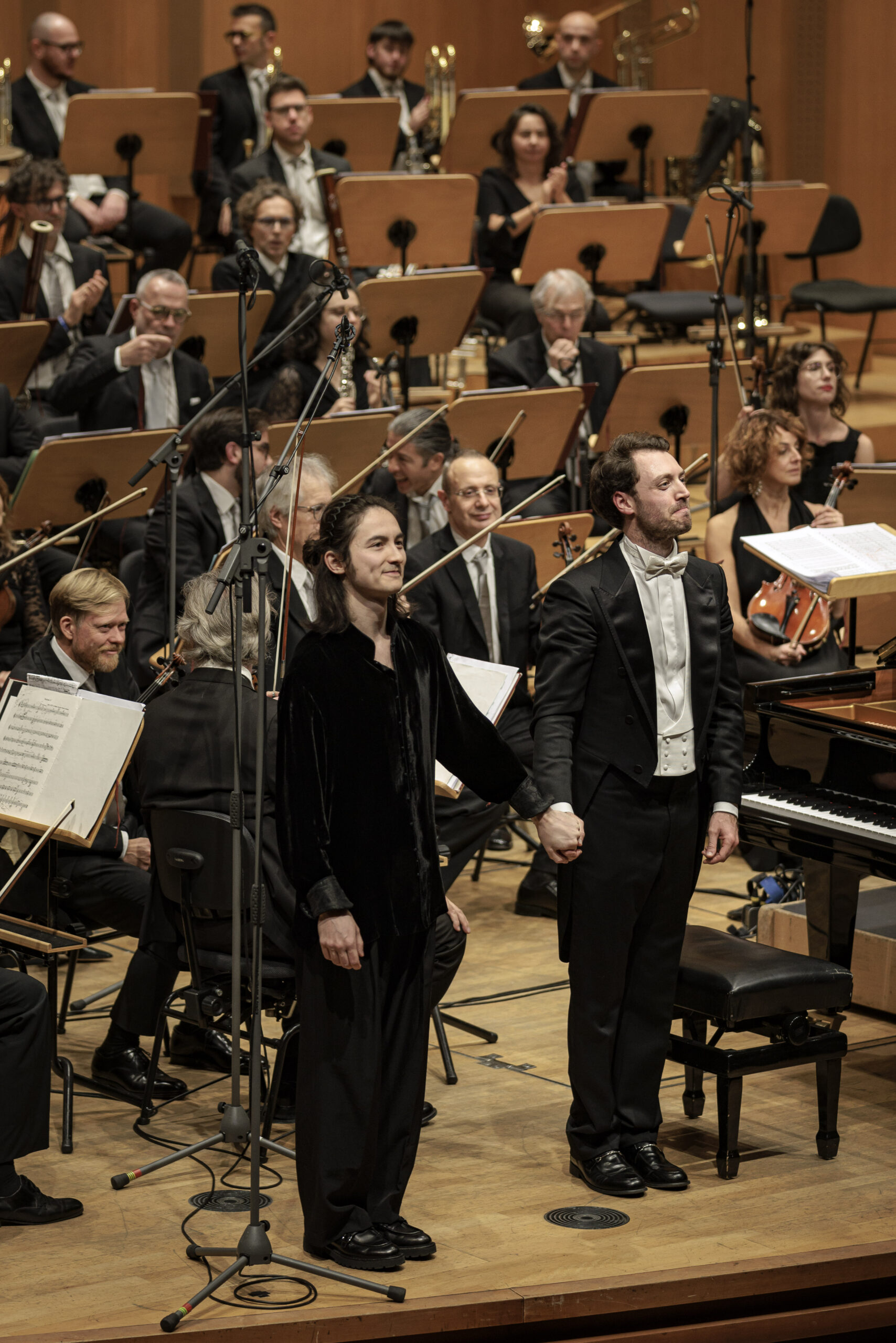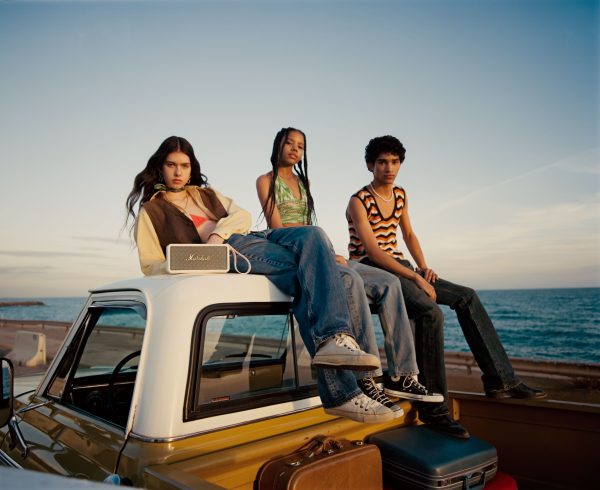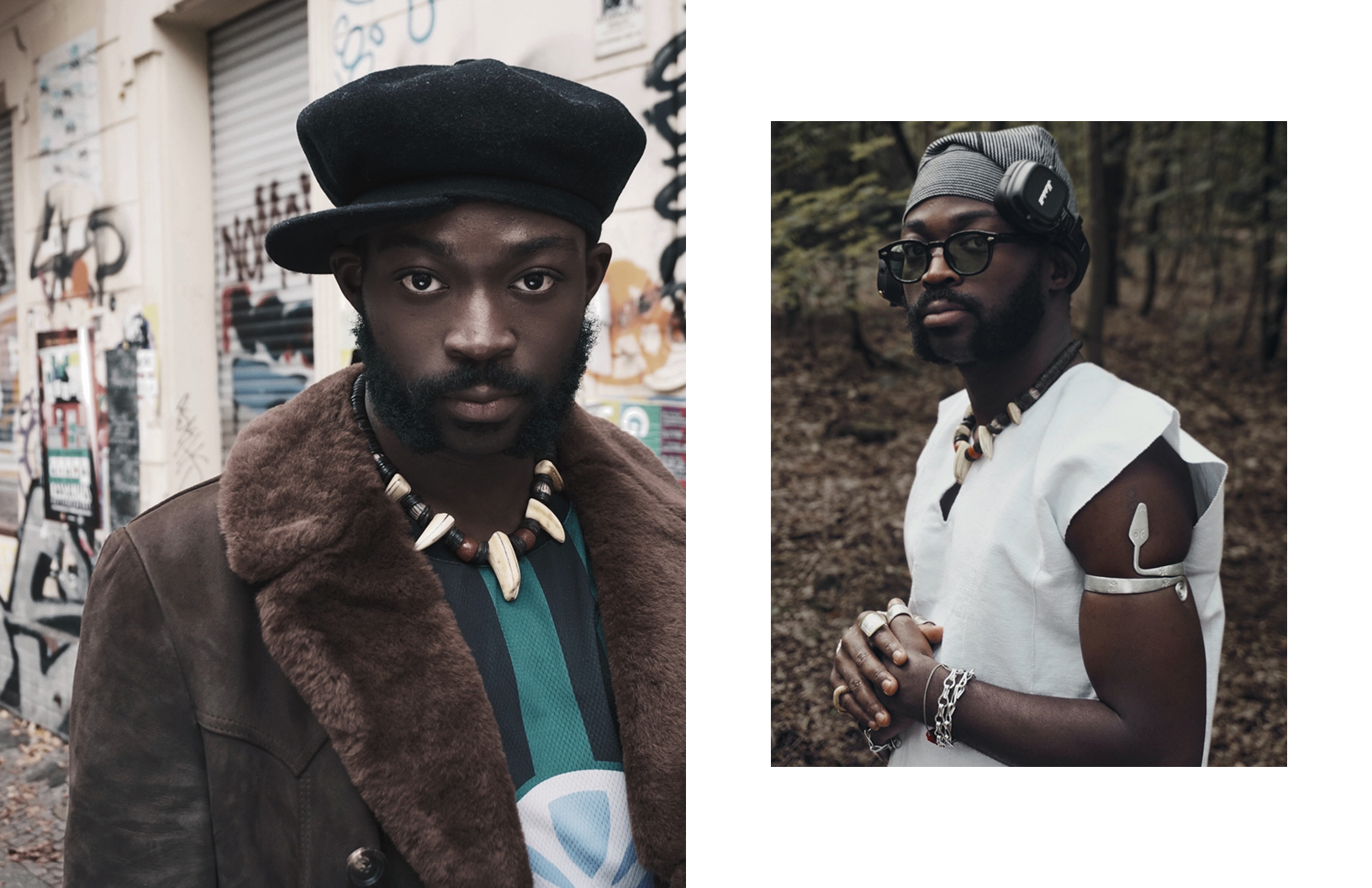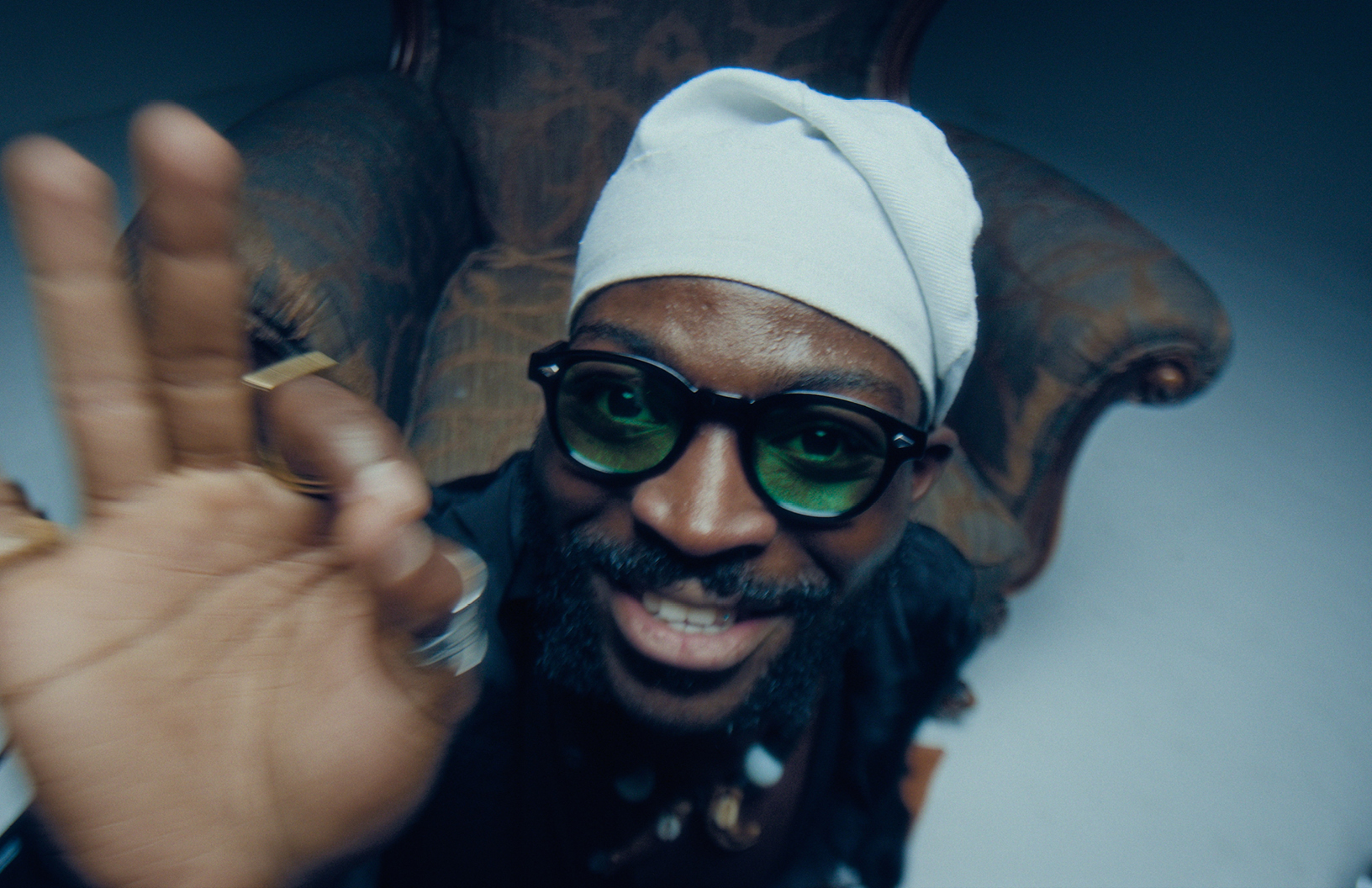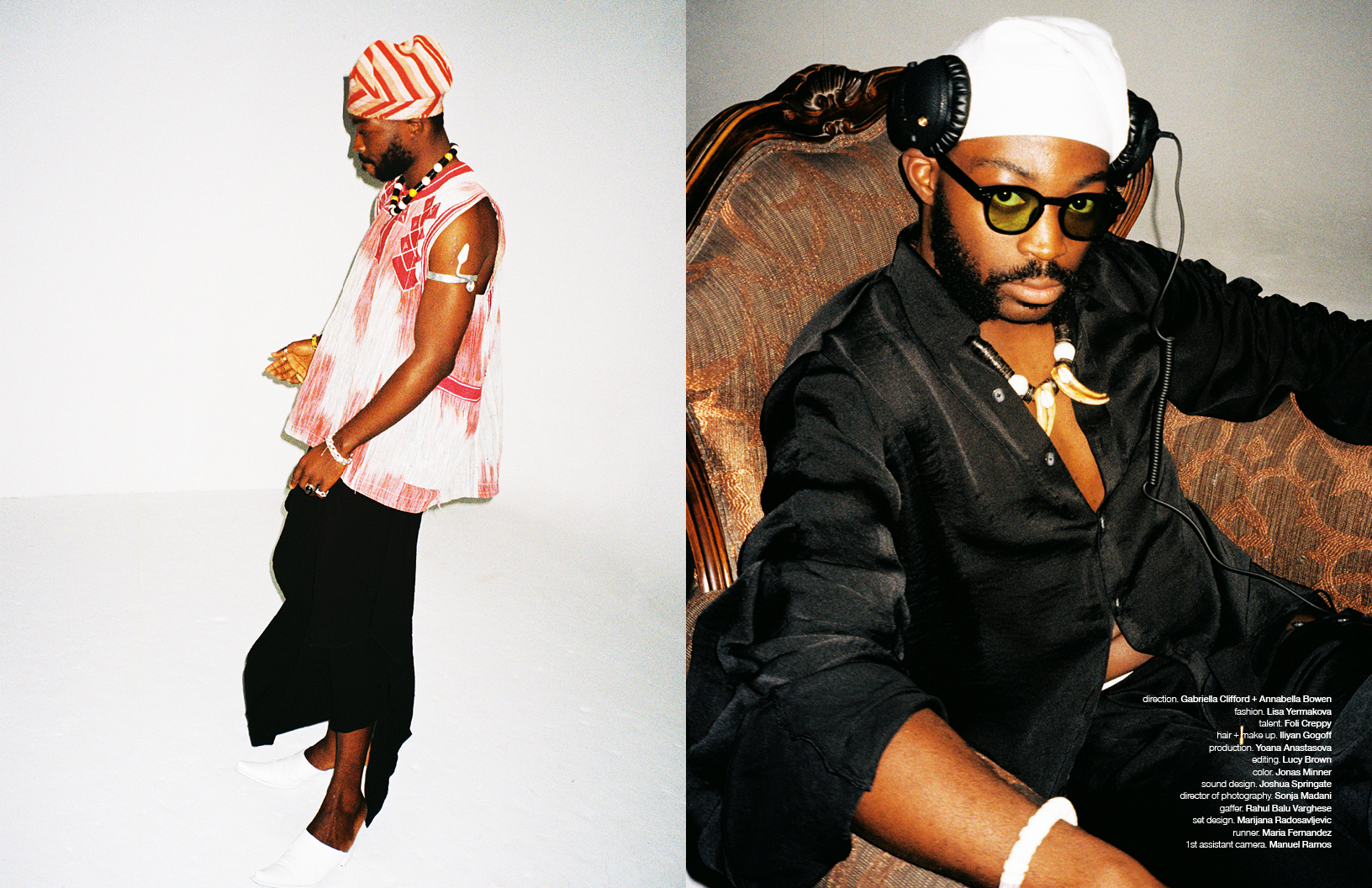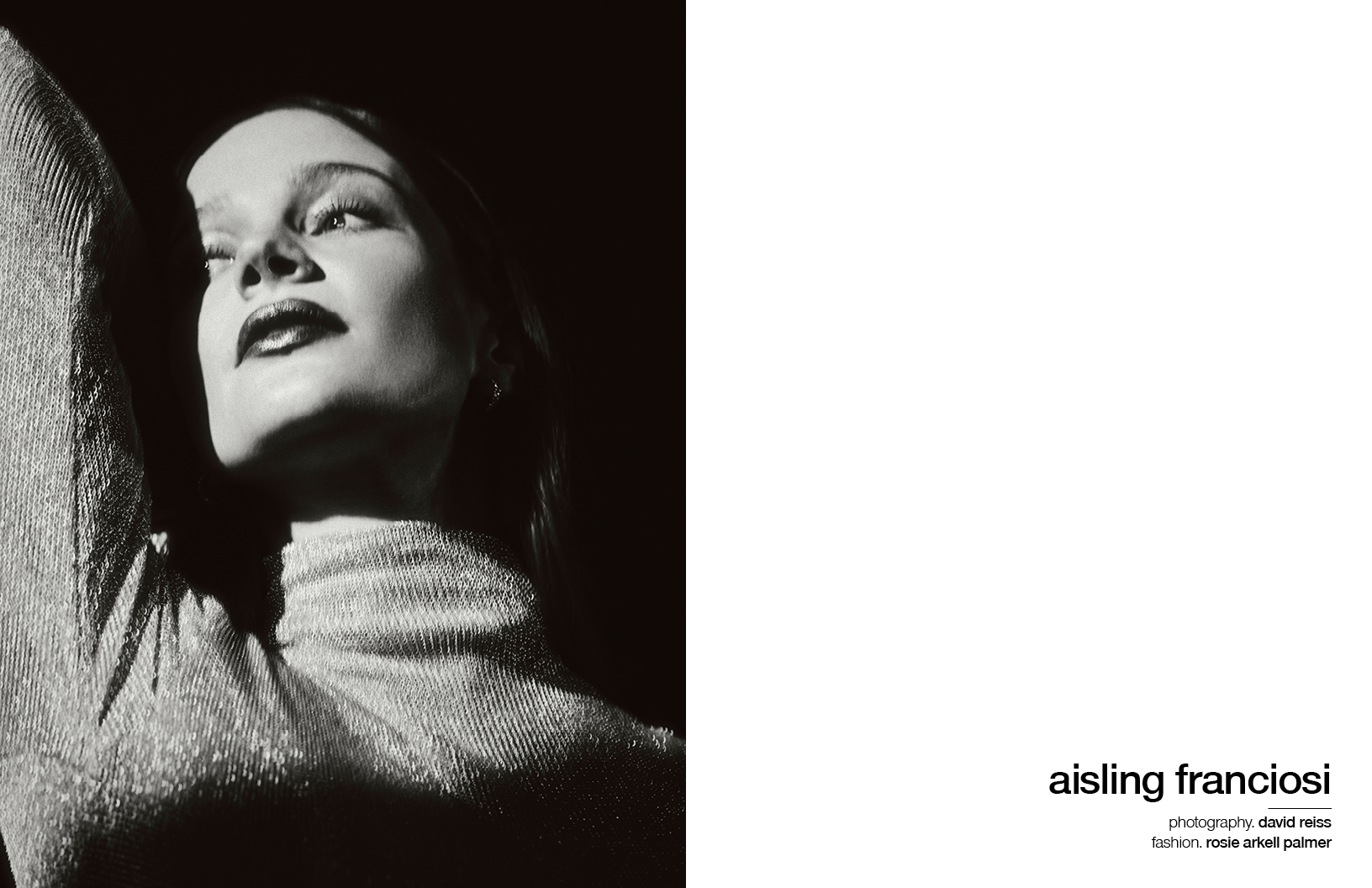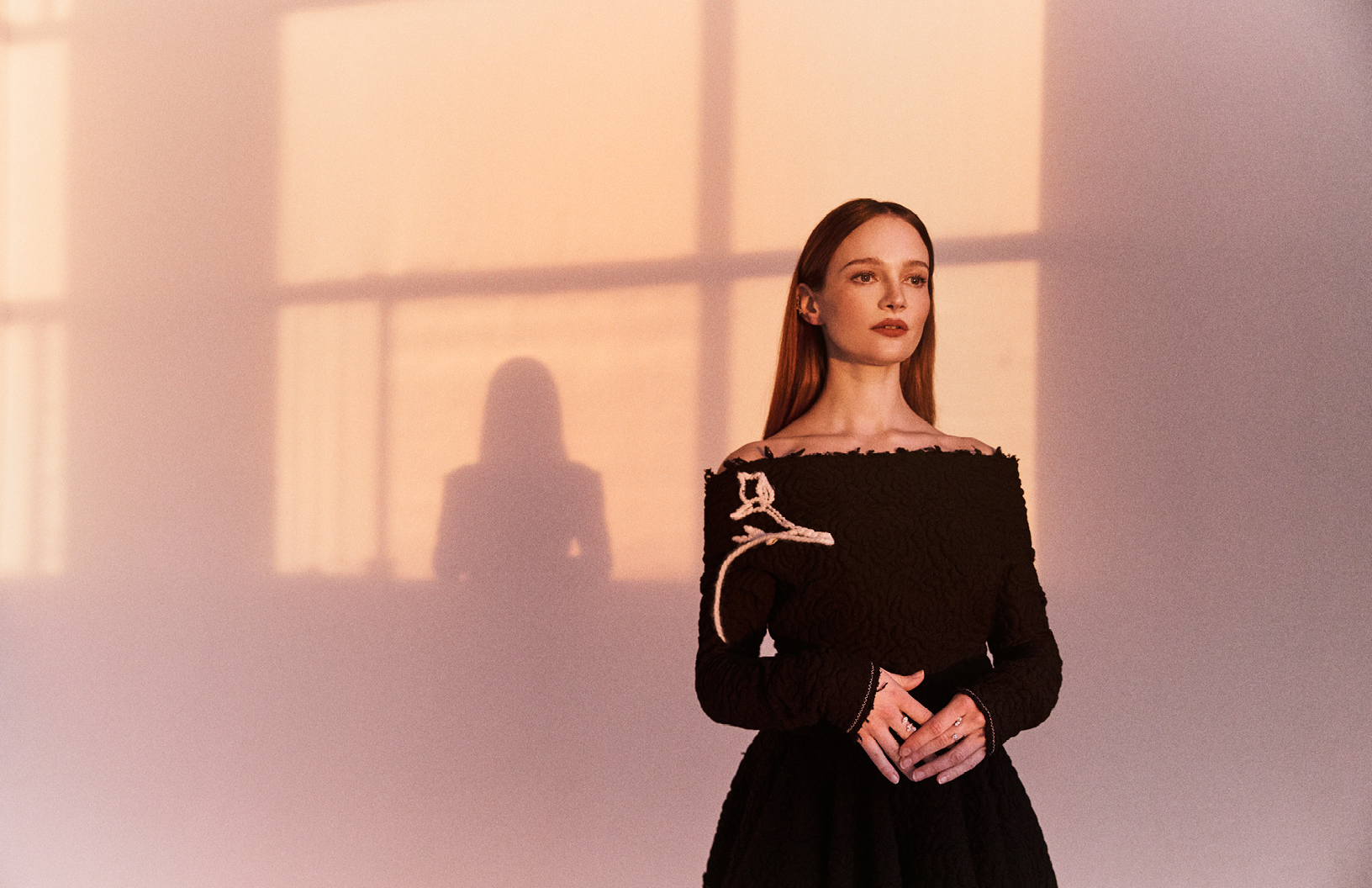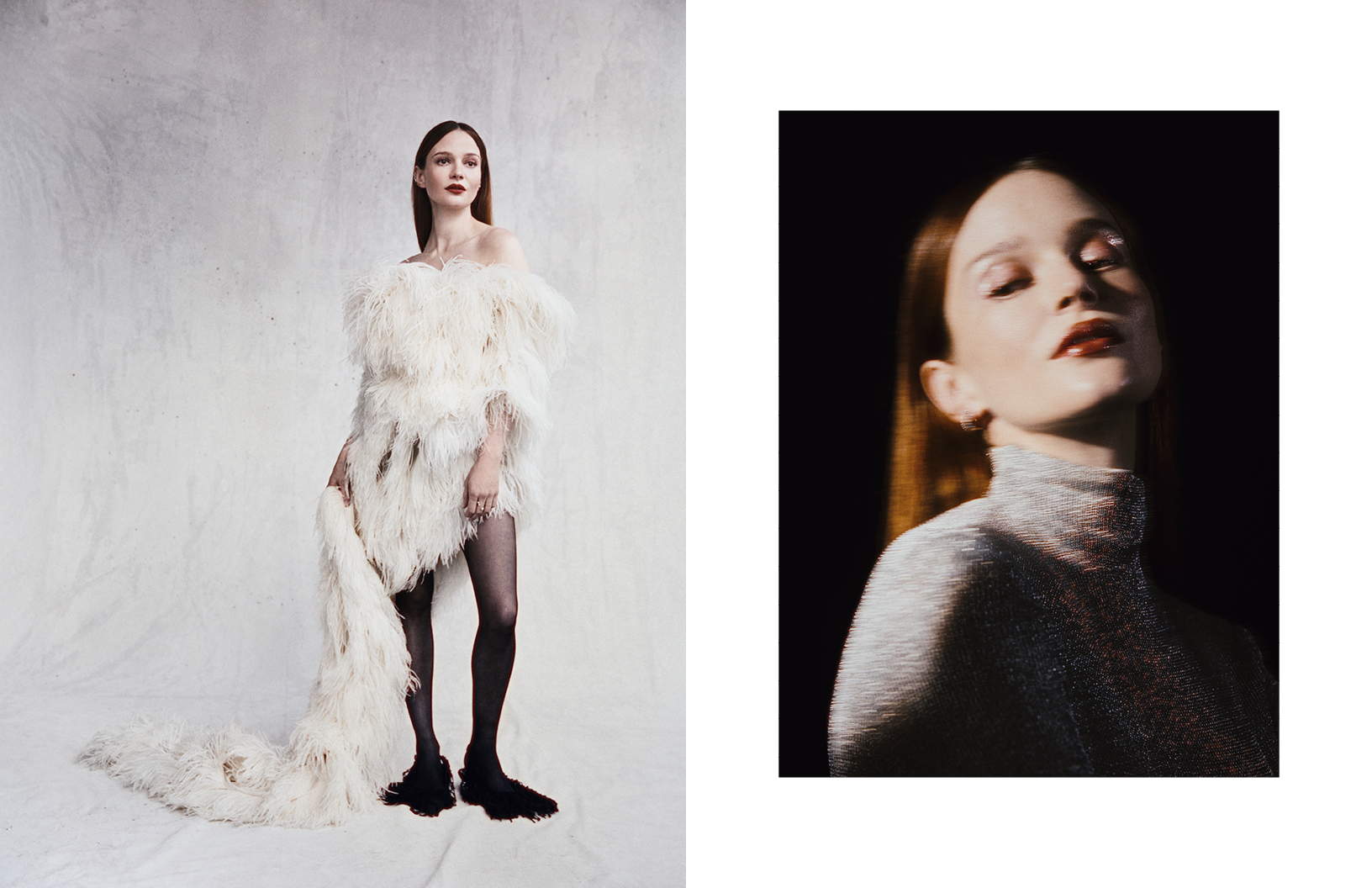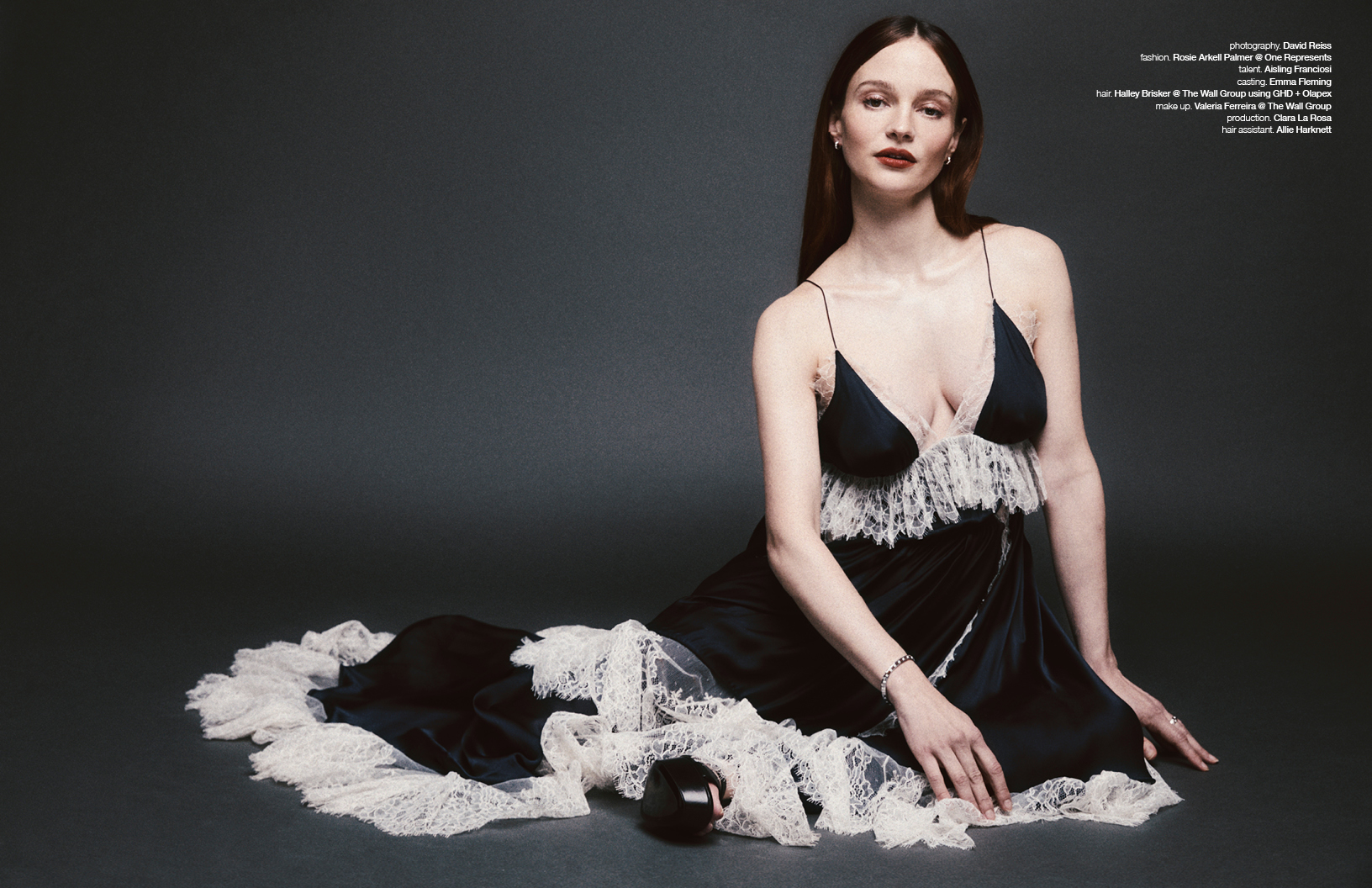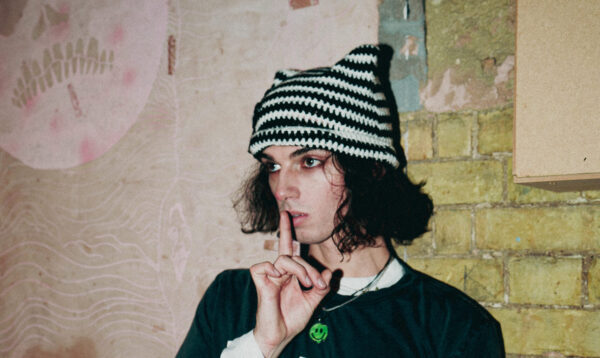
full look. Chhavvi Aggarwal
ring. Antarez Jewels
opposite
full look. Rahul Mishra + Uamumbai
jewellery. Prerto Jewellery
Starring in Apple TV+’s Foundation, Kubbra Sait is changing the game around the world. In this exclusive Schön! interview, we chat with Sait about how her previous experiences, bad and good, have led her to where she is now — particularly with her mounting recognition in the West. Schön! also had the opportunity to discuss inclusivity in the entertainment industry and Sait’s contribution towards the all-important “wheel of change”, especially with her involvement in Foundation. As Sait says herself, the sky’s the limit, but there’s no rush to get there whilst she relishes every moment.
You previously worked for Microsoft as an accounts manager before becoming an actress – what was the transition like? How did it take place?
There is a deep rooted stigma around the arts and careers around the same for many in India. We’ve witnessed the crop of successful doctors and engineers who have served and served well not just in our country but all over the globe. If one (me) did not have the aptitude for the sciences, the next best option was a corporate job. That is what drew me to Dubai and the first five years of my formative life trying to keep a stable job, even if the root for me was instability as a human being. Working at Microsoft taught me how to write good emails — the kinds that pierce your heart in order to get things done. The enduring boredom is what pushed me in the direction of being an actor. [There were] a few opportunities here and there; insignificant, blink and miss roles drew me closer to the light of being a performer. It was all that was happening behind the scenes that caught my attention. I wanted to fail properly and fully before I could write off being an actor or any kind of performer. It was this spark and of course a whole SWOT analysis exercise that brought me to Mumbai, India, the hub of Indian entertainment. The transition was arduous, but now when I look back at the decade it appears to be a blink in time. The character Kuku in Sacred Games was the first highlight of many such experiences. It was the beginning of something brand new. I embraced it. Here we are today speaking about Foundation. It’s all been laying the building blocks to get thus far.

full look. Chhavvi Aggarwal
ring. Antarez Jewels
opposite
full look. Rahul Mishra + Uamumbai
jewellery. Prerto Jewellery
Foundation is your first major break into the ‘Western’ media market. How has been being exposed to a new audience for the first time? Any moments that stick out in your memory?
When I saw a shout out for my performance for the first time in a leading critic review. When I saw my name there, I felt a surge of joy. It felt like all that hard work was recognised. I am excited to see what else we can do with this present opportunity. I’ve just discovered my wings. I’ll take off now. Just checking the ground clearance at the moment.
How does working in the West differ from the industry back home in India?
Each actor in every frame is a trained performer. Time is valued. There are no favours. Everybody is working with the same energy to get things done. Time is invested in script work, the skeletal existence of the project. I had an incredible journey working and learning from incredible actors and human beings. I certainly believe I was paid to go to school and perform.
Let’s turn to Foundation. Like Dune, Foundation was regarded as ‘unfilmable’ because of its rich story and complexities, until it was finally made (and with positive reviews too!). How do you feel being part of such a big and challenging project?
It feels like I am a part of entertainment history. I didn’t know or fully understand the magnitude of this project until I started working on Foundation. I do believe Foundation is a part of a bigger narrative. It’s about human beings in the dystopian world we are currently living in. It’s an honour to be a part of an illustrious crew and organisation that believes in telling stories without fear. It’s a place of responsibility to be a part of Issac Assimov’s vision unbridled by David S Goyer and Josh Friedman’s execution.
Could you tell us about your character Phara in Foundation and what drew you to her?
Phara is crazy manipulative; she is crazy from the onset. As you delve further into her mind and her journey, I realised she is a victim of the circumstances she didn’t create for herself. She now seeks revenge from those who did her wrong. She doesn’t know better or worse. She is here to get the job done, and she will no matter what it takes. That passion is what drew me close to Phara. She is a survivor. It’s hard and it would be a disservice to judge Phara. So I omitted my judgement about her to play her.

full look. Rahul Mishra + Uamumbai
jewellery. Prerto Jewellery
opposite
full look. Verb by Pallavi Singhee
jewellery. Antarez Jewels

full look. Verb by Pallavi Singhee
jewellery. Antarez Jewels
opposite
full look. Chhavvi Aggarwal
ring. Antarez Jewels
Phara is characterised as brutal and savage – what techniques, methods or even experiences do you use to portray her?
Learning combative choreography, sitting with the lines, learning the new language in the show. Learning to laugh with disgust at the lines she utters from her mouth. These are the tools I used to portray Phara. I am not close to who she is in real life. I forgive easily — so carrying the weight of generational loss over her shoulders was the internal truth for me while playing Phara.
What was the preparation like for Foundation? I can imagine it was quite intense, especially with portraying a ruthless military officer!
She has her military, she has the artillery. I did not know how to use guns or throw a punch (let alone in handcuffs). The disdain in her face is something I cherish and I am proud of. We actually were trained by retired army officers who taught us stealth in movement. It was fun… while it was excruciating. Each punch and each movement had to be repeated several times until we mastered it. It was not just mental work, it was a lot of physical work to become Phara.
Out of all the sci-fi series streaming right now, why do you think Foundation stands out as one to watch?
It’s a slow burner. It’s got great performances. Jared Haris needs no introduction. He is beautifully detached as Hari Seldon, the creator of the foundation. Lou Loubell and Leah Harvey do an incredible job. Lee Pace is a delight to watch on screen (I laugh sometimes thinking how lucky I am to not have shared screen space with him — he is sooo good). Terrance Mann and Laura Birn are so beautifully conflicted with the energy they bring to their characters. Dan McPhearson asked me if I was born to play Phara — when I stuttered, he told me ‘I need you to believe it’ and tell me before this job is done. I’m glad I was able to share the sentiment with him eventually. But apart from the acting, it’s the scale. Nothing like this has ever been invested in and made for the viewers to watch. Foundation feels like each episode is a larger-than-life short film. I am delighted to know that we’ve been greenlit for season two. Foundation isn’t stopping; you better get watching. Chris McClean and Rory Cheyne do an incredible job bringing the many worlds to life. It is truly a show that is larger than life.
Speaking of season two, what should viewers expect for the next season of Foundation?
Another magnificent journey.

full look. Rahul Mishra + Uamumbai
jewellery. Prerto Jewellery
opposite
full look. Chhavvi Aggarwal
ring. Antarez Jewels
Do you feel hopeful about the entertainment industry’s steps toward telling more inclusive stories with more inclusive casts? Why or why not?
We are discovering the world. With us watching content from all over the globe, we are drawing ourselves into the possibilities of learning cultures through stories. I have a unique culture, so does someone else from another part of the earth. Phara could’ve been anyone from anywhere, She happens to be me, and I happen to be from India. I am grateful to the makers for allowing me to retain my accent / dialect for the show. Inclusivity isn’t a statement. It’s about living and breathing those thoughts. It is about casting the fitting person to represent the character in the story. I see a lot of people from the sub continent doing so well, in various projects around the world. Stories are being written, we will do the best we know. It will be a good ride. That I know for sure. I see myself being a cog in the wheel of change.
Besides acting, what else has been keeping you busy these days? Any hobbies or activities to share?
I am writing a memoir. It is being edited as we speak. I am excited about telling a part of my story.
What does the future hold for you?
The sky’s the limit. I am in the direction towards the horizon. I’ll get there when I get there. P.S. — meetings in the west will be on the cards. More tapings and more fun. I promise to enjoy this new unimagined journey.
Foundation is currently streaming on Apple TV+.
direction + photography. Kay Sukumar
fashion. Sheefa Jgilani
talent. Kubbra Sait
hair + make up. Charlotte Wang
production. P Productions
words. Alyssa Bondoc


Schön! Magazine is now available in print at Amazon,
as ebook download + on any mobile device



























































